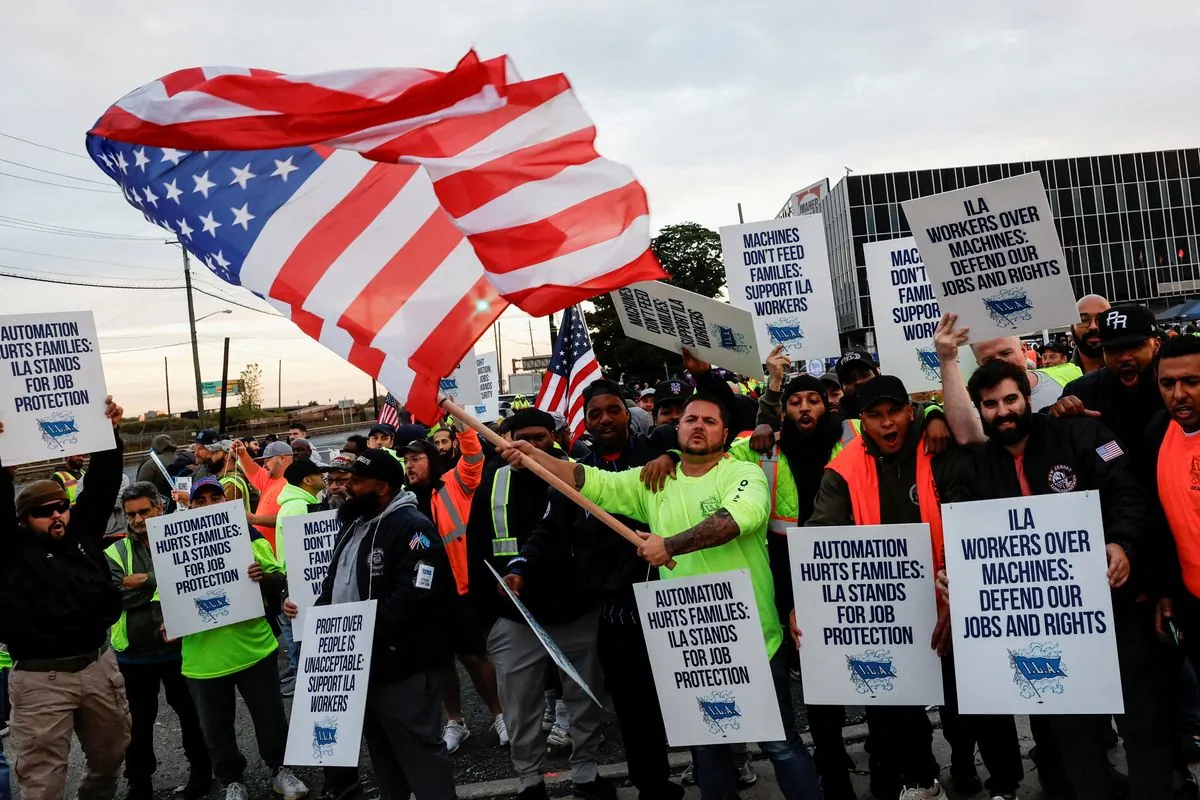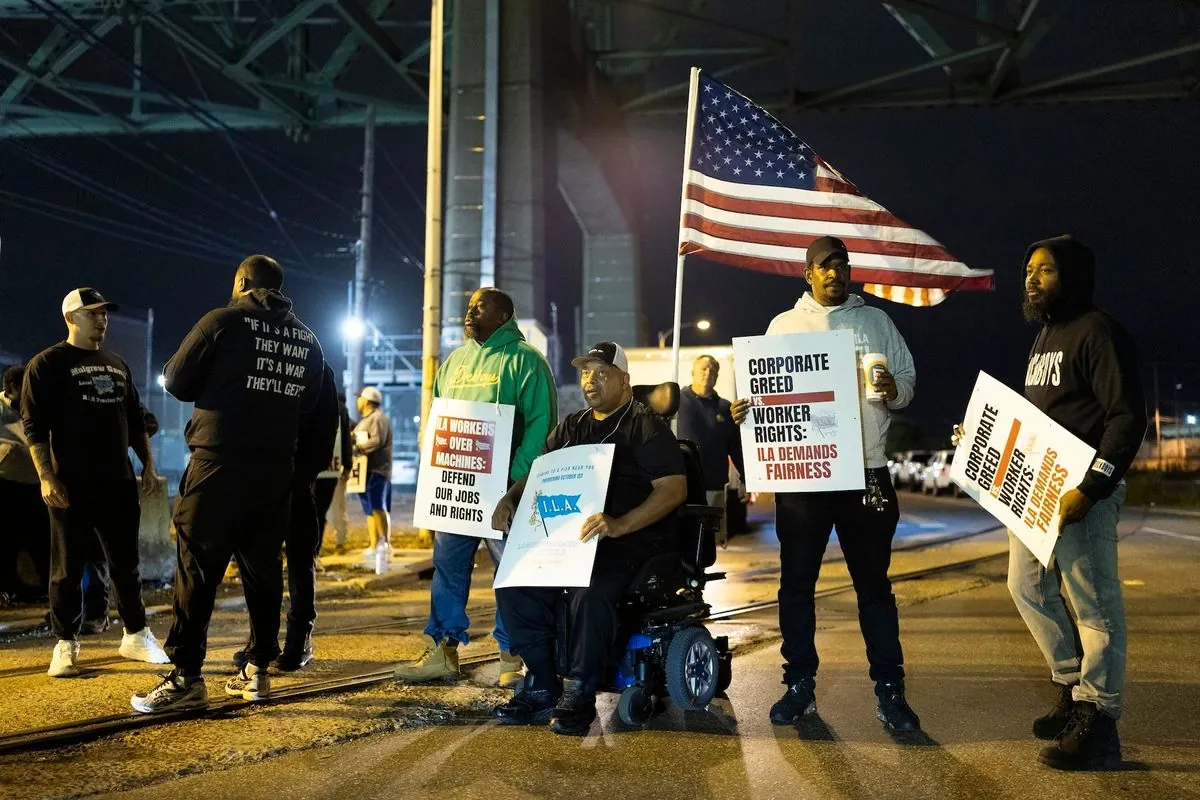East Coast Ports Paralyzed: Dockworkers Launch Historic Strike
Dockworkers at 36 eastern U.S. ports initiate first strike in 47 years, demanding fair wages and job protection. The work stoppage threatens supply chains and could impact the upcoming presidential election.

For the first time in nearly five decades, dockworkers at 36 ports along the eastern United States have initiated a strike, potentially disrupting supply chains and the national economy. The work stoppage, which began on October 1, 2024, marks a significant moment in labor relations, with approximately 45,000 members of the International Longshoremen's Association (ILA) demanding improved wages and protection against job automation.
The ILA, founded in 1892, has not engaged in a strike of this magnitude since 1977. Workers are seeking fair contracts that address concerns over automation, which has been a growing trend in port operations since the introduction of containerization in the 1960s. The first automated container terminal in the U.S. opened in 1993 in Norfolk, Virginia, and the use of artificial intelligence in port operations has been increasing since the 2010s.
Boise Butler, local ILA president, emphasized the union's resolve: "We're not weak. This is not something that you start and you stop." The union's importance to the nation's economy cannot be overstated, as over 90% of world trade is carried by sea, and the U.S. economy heavily relies on maritime trade.

The strike occurs at a critical time, just weeks before the November 2024 presidential election. If prolonged, it could lead to shortages and price increases, potentially influencing voters' decisions. The White House has stated that President Biden and Vice President Harris are closely monitoring the situation, with a task force meeting daily to prepare for potential disruptions.
Negotiations between the ILA and the U.S. Maritime Alliance, formed in 1997 to negotiate labor agreements, have stalled since June 2024. The union initially proposed a 77% pay raise over six years, while the alliance's latest offer included a 50% increase and maintained existing limits on automation.
The economic impact of the strike could be substantial. J.P. Morgan, a financial institution founded in 1871, estimates that a prolonged work stoppage could cost the economy $3.8 billion to $4.5 billion per day. This figure is reminiscent of the 2002 West Coast port strike, which cost an estimated $1 billion daily.
"The alliance's latest proposal fell far short of what ILA rank-and-file members are demanding in wages and protections against automation."
The strike's effects may not be immediately apparent to consumers, as many retailers have prepared by stocking up on goods. However, if the work stoppage extends beyond a few weeks, it could disrupt the holiday shopping season, which typically begins in late October and peaks in December.
Certain industries may feel the impact sooner. For instance, the ports affected by the strike handle 75% of the nation's banana supply, amounting to 3.8 million metric tons annually. This could lead to shortages of perishable goods in the near term.
The situation highlights the ongoing tension between technological advancement and job security in the maritime industry. The International Maritime Organization (IMO), established in 1948 to regulate shipping, has been at the forefront of addressing these challenges globally.
As the strike unfolds, its resolution will likely have far-reaching implications for labor relations, port operations, and the broader U.S. economy. The outcome may set a precedent for how the industry balances automation with workers' rights in the years to come.


































